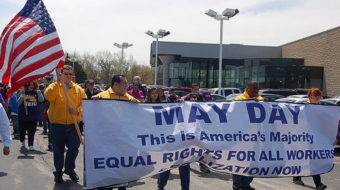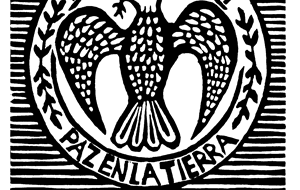ST. PAUL – (Workday Minnesota) On July 24, the federal minimum wage rose from $6.55 to $7.25 per hour, an increase of 70 cents or just over 10 percent. For full-time minimum wage workers, the raise amounts to about $28 a week.
‘When you are barely keeping your head above water, any wave can drown you,’ said worker advocate Kris Jacobs, director of the statewide JOBS NOW Coalition. ‘An extra bag of groceries means a lot to vulnerable low-wage workers and their families.’
According to the U.S. Bureau of Labor Statistics, if the minimum wage had kept pace with inflation since 1968, it would now be $9.92 an hour. More than 600,000 jobs in Minnesota pay less than $9.92 per hour; and in Greater Minnesota one out of four jobs pay less than this.
JOBS NOW’s Cost of Living in Minnesota research shows the results of the steep decline in value and purchasing power of the minimum wage. At the new minimum wage of $7.25 per hour, a couple with two children living in Minnesota would have to work 148 hours a week just to meet basic needs.
According to JOBS NOW’s research on living standards, each worker in a Minnesota family of four with two workers needs at least $13.41 per hour. View the research at www.jobsnowcoalition.org.
Over the next year the wage hike will generate $5.5 billion in consumer spending across the nation, according to the Washington-based Economic Policy Institute.
Nationally, about 10 million workers – 10.7% of all workers – will earn the new, higher wage, according to an analysis by the organization Workplace Fairness.
Minnesota businesses that engage in interstate commerce and have annual business volume of $500,000 or more will be covered by the new minimum. But firms smaller than that who do not engage in interstate commerce will still
pay only $5.25 an hour and the 90 day training wage for workers under 20 years old remains $4.90.

MOST POPULAR TODAY

High Court essentially bans demonstrations, freedom of assembly in Deep South

UN warns that Israel is still blocking humanitarian aid to Gaza

U.S. imperialism’s ‘ironclad’ support for Israel increases fascist danger at home


Resource wars rage in eastern Congo, but U.S. capitalism only sees investment opportunity





Comments